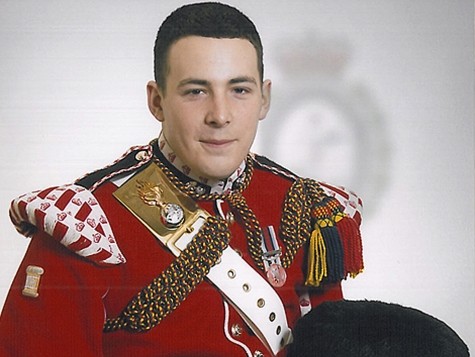Facebook failed to notify authorities of a message from one of Lee Rigby’s killers in which he threatened to kill a soldier. Michael Adebowale used the site to contact another extremist, discussing his plans five months before carrying out the murder of Fusilier Rigby on a street in Woolwich, London.
The report on Lee Rigby’s killing, published today, said that Rigby’s murder could not have been prevented by intelligence services, however that may have been different had an unnamed website passed on details of Adebowale’s messages.
That website was this evening named as Facebook by various sources, according to Sky News.
The report found that although there were errors made in security operations, without the information from Facebook they “were not significant enough to have made a difference.”
“This was highly significant,” the Chairman of the Committee, Sir Malcolm Rifkind said. “Had MI5 had access to this exchange at the time, Adebowale would have become a top priority. There is then a significant possibility that MI5 would have been able to prevent the attack.”
The findings, published today by the Intelligence and Security Committee of Parliament, went through hundreds of highly classified documents and questioned Ministers, the Heads of the three Agencies, and senior officers from the Metropolitan Police Service.
Its chairman, Sir Malcolm Rifkind, said the two men who murdered the soldier appeared, between them, in seven different Agency investigations, “the most part as low-level Subjects of Interest.”
“Over the past eighteen months, the Intelligence and Security Committee of Parliament has examined in considerable detail the actions of the intelligence and security Agencies in relation to the two men who killed Fusilier Rigby.”
“We have also considered whether, taken together, these errors may have affected the outcome. We have concluded that, given what the Agencies knew at the time, they were not in a position to prevent the murder of Fusilier Rigby,” Sir Malcolm said.
The investigation revealed that one of the murderers, Michael Adebolajo, was a high priority for MI5 in two of their investigations but like his accomplice Michael Adebowale, there was no intelligence of a forthcoming attack.
It also said that MI6’s “apparent lack of interest” in Adebolajo’s arrest in Kenya, where he was apparently preparing to fight with the extremist terrorist group al-Shabab, was “deeply unsatisfactory.”
The Committee said the response by the Secret Intelligence Service to a British national joining an overseas terrorist organisations was “inadequate”.
They added that “neither they [SIS] nor MI5 accorded him sufficient priority upon his return to the UK,” adding, “Given the current situation in Syria and Iraq, we have very significant concerns in this regard.”
The Home Secretary yesterday was one of a number of voices who said that Britain faced another terrorist attack on its streets.
Speaking at the Royal United Services Institute, she outlined plans for new laws which would include the closer monitoring of online behaviour for suspected terrorists.
But with the Bill needing to go through various Parliamentary stages before it reaches the Statute books and hundreds of suspected home grown extremists training with the Islamic State fighters in Iraq and Syria, the public are still exposed to a higher level of threat.

COMMENTS
Please let us know if you're having issues with commenting.